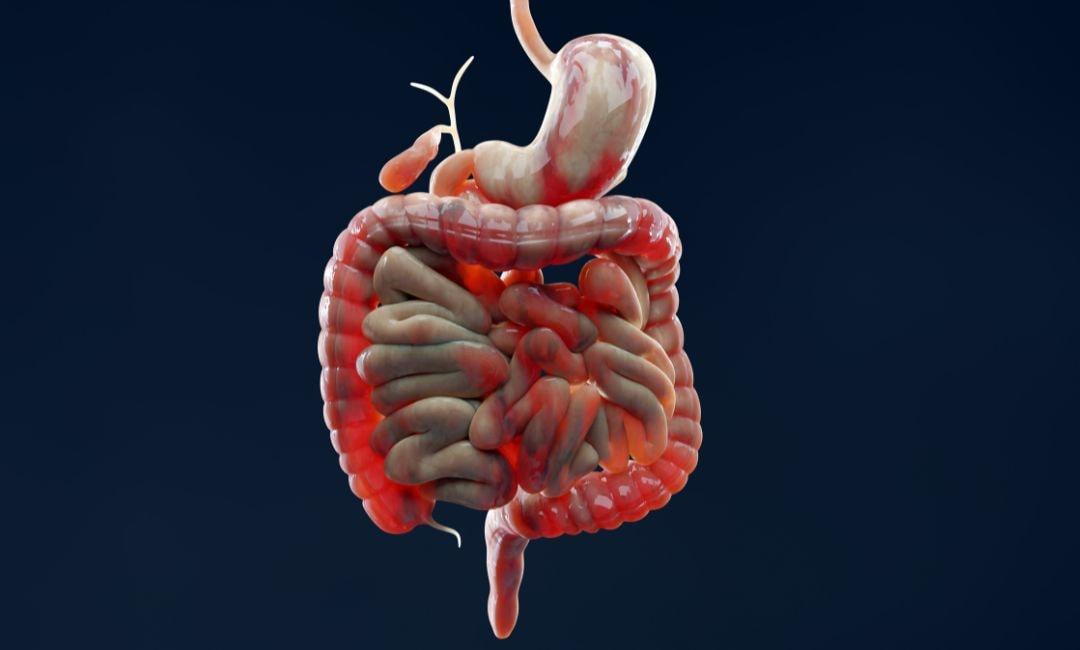Is Bowel Leakage a Sign of Cancer?

- posted: Oct. 08, 2024
Experiencing bowel leakage can be alarming, right? It's definitely not something you want to ignore. You might even worry it's a sign of something serious, like cancer. But don't panic just yet. We're here to break down the facts and help you understand what's really going on.
In this article, we'll cover:
The link between bowel leakage and cancer
Common causes of bowel leakage
When to see a doctor
Treatment options available
And if you're in the Fort Lauderdale area, the experienced dermatologists at Natura Dermatology & Cosmetics can provide expert advice and treatment for a wide range of skin conditions. We are dedicated to improving your overall well-being, and that includes addressing concerns like bowel leakage.
The Link Between Bowel Leakage and Cancer
Let's address the elephant in the room: can bowel leakage be a sign of cancer? The short answer is that it's possible, but it's usually not the most likely cause.
Bowel leakage (also known as fecal incontinence) can be caused by a whole bunch of things, from muscle weakness to certain medical conditions.
However, in some cases, it can be a symptom of colorectal cancer. This is because tumors in the colon or rectum can sometimes interfere with your ability to control your bowels.
Bowel leakage itself is rarely the only sign of colorectal cancer. You might also experience:
Changes in bowel habits: These changes can be subtle or dramatic. You might notice that you have more frequent bowel movement, or that your stools are different in consistency (e.g., harder, softer, or more watery). You might also experience diarrhea or constipation.
Blood in your stool: This can be a sign of a serious medical condition, including colorectal cancer. Blood in your stool can be bright red, dark red, or black.
Abdominal pain: This pain can be cramping, sharp, or dull. It may be located in your lower abdomen or in your sides.
Unexplained weight loss: If you're losing weight without making any changes to your diet or exercise routine, it could be a sign of a serious medical condition, such as colorectal cancer.
If you're experiencing irritable bowel syndrome along with any of these other symptoms, it's crucial to see a doctor right away. They can properly assess your situation and determine the cause.
Common Causes of Bowel Leakage
So we know bowel leakage can be related to colon cancer, but it's often caused by other factors. Let's explore some of the most common culprits:
Muscle Weakness: The muscles around your anus play a key role in holding in stool. If these muscles are weakened or damaged, you might experience leakage. This can happen due to childbirth, aging, or even chronic straining from constipation.
Nerve Damage: The nerves that control your anal sphincter (the muscle that opens and closes your anus) are also essential for bowel control. Conditions like diabetes, multiple sclerosis, and spinal cord injuries can damage these nerves and lead to leakage.
Diarrhea: Frequent loose stools can overwhelm your ability to control your bowels, leading to accidents.
Constipation: Believe it or not, constipation can also cause bowel leakage. Hard, dry stools can stretch and weaken your rectal muscles. This can allow liquid stool to leak out around the blockage.
Other Medical Conditions: Inflammatory bowel disease (IBD), irritable bowel syndrome (IBS), and even hemorrhoids can contribute to bowel leakage.
Keeping a "bowel diary" can be super helpful in identifying potential triggers for your bowel leakage. Track things like the foods you eat, your bowel movements, and any medications you're taking. This information can help you and your doctor pinpoint the cause and find the right treatment.
When to See a Doctor About Bowel Leakage

Let's talk about when it's time to pick up the phone and schedule that doctor's appointment. While occasional accidents happen, you shouldn't just brush off persistent bowel leakage.
Here are some symptoms of bowel incontinence for which you should definitely seek medical advice:
Frequent Leakage: If you're experiencing bowel leakage regularly, it's time to get it checked out. Don't let embarrassment stop you – doctors have seen it all.
Sudden Onset: Did your bowel leakage start unexpectedly? This could signal an underlying issue that needs attention.
Accompanied by Other Symptoms: We talked about this earlier, but it's worth repeating. If you're experiencing bowel leakage along with blood in your stool, abdominal pain, or unexplained weight loss, see a doctor ASAP.
Impacting Your Quality of Life: Bowel leakage can be, well, awkward. If it's preventing you from enjoying your life or causing emotional distress, don't hesitate to seek help.
When you see your doctor, be prepared to discuss your symptoms in detail. This will help them determine the cause and recommend the best course of action. Don't be shy – the more information you provide, the better.
At Natura Dermatology & Cosmetics, we believe in open communication and personalized care. Our compassionate team is here to listen to your concerns and provide the support you need on your journey to better health.
Treatment Options Available for Bowel Leakage
There are plenty of treatment options available, and finding the right one often depends on the underlying cause. Here are some common approaches:
Lifestyle Changes: Simple changes to your diet and routine can make a big difference. This might involve increasing your fiber intake, staying hydrated, and establishing regular bathroom breaks.
Pelvic Floor Exercises: These exercises, often called Kegels, strengthen the muscles that control your bowels. Think of it like a workout for your pelvic floor.
Medications: Your doctor might recommend medications to manage diarrhea or constipation, which can contribute to leakage.
Biofeedback Therapy: This technique helps you become more aware of your body's signals, allowing you to better control your bowel movements.
Surgery: In some cases, surgery might be an option to repair damaged muscles or nerves.
BTL Emsella: This non-invasive treatment uses electromagnetic energy to stimulate and strengthen your pelvic floor muscles. It's like doing thousands of Kegels in a single session. Emsella can be a game-changer for those with bowel leakage, providing a comfortable and effective way to regain control.
Don't be afraid to advocate for yourself and ask your doctor about all the available treatment options, including BTL Emsella. It might take some trial and error to find what works best for you.
At Natura Dermatology & Cosmetics, we believe in empowering our patients with knowledge and options. We'll work with you to understand your individual needs and develop a personalized treatment plan to address your bowel leakage concerns, which may include innovative solutions like BTL Emsella.
FAQs
What is bowel leakage usually a sign of?
While we've discussed the potential link between bowel leakage and cancer, it's important to remember that most cases are caused by other risk factors. Here are some of the usual suspects:
Muscle weakness: The muscles in your pelvic floor, particularly those around your anus, play a crucial role in controlling bowel movements. Weakening of these muscles due to childbirth, aging, or chronic straining can lead to leakage.
Nerve damage: The nerves that control your anal sphincter (the muscle that opens and closes your anus) can be damaged by conditions like diabetes, multiple sclerosis, and spinal cord injuries. This can disrupt the signals between your brain and your bowels, resulting in leakage.
Digestive issues: Conditions like diarrhea and constipation can also contribute to bowel leakage. Diarrhea can overwhelm your bowel control, while constipation can lead to hard stools that stretch and weaken your rectal muscles.
How do I stop my bowels from leaking?
The best way to stop bowel leakage depends on the underlying cause. Here are a few strategies that might help:
Lifestyle changes: Making simple changes to your diet and routine can often improve bowel control. This might involve increasing your fiber intake to regulate bowel movements, staying hydrated, and establishing regular bathroom breaks.
Pelvic floor exercises: Strengthening your pelvic floor muscles through exercises like Kegels can improve your ability to hold in stool.
Medications: Your doctor might recommend medications to manage underlying conditions like diarrhea or constipation.
Biofeedback therapy: This technique helps you become more aware of your body's signals, allowing you to better control your bowel movements.
Rectal surgery: In some cases, surgery by colon and rectal surgeons might be an option to repair damaged muscles or nerves.
What cancer causes bowel leakage?
Colorectal cancers, which affect the colon and rectum, are the type of bowel cancer most commonly associated with bowel leakage. Tumors in these areas can interfere with your ability to control your bowels. However, remember that bowel leakage is rarely the only symptom of colon and rectal cancer. You might also experience changes in bowel habits, blood in your stool, abdominal pain, and unexplained weight loss.
What foods stop bowel leakage?
While no magic food will completely eliminate bowel leakage, certain dietary changes can help:
Fiber-rich foods: Fiber adds bulk to your stool, making it easier to pass and reducing the likelihood of diarrhea. Good sources of fiber include fruits, vegetables, whole grains, and legumes.
Hydrating fluids: Staying hydrated is crucial for maintaining healthy bowel function. Drink plenty of water throughout the day.
Foods to avoid: If you experience frequent diarrhea, you might want to limit or avoid foods that can worsen symptoms, such as caffeine, alcohol, fatty foods, and spicy foods.
What vitamin helps with bowel incontinence?
While there's no single vitamin that's a guaranteed cure for bowel incontinence, certain vitamins and minerals can support overall digestive health:
Vitamin D: Vitamin D plays a role in muscle function, including the muscles involved in bowel control.
Magnesium: Magnesium can help regulate bowel movements and prevent constipation.
What foods are good for fecal incontinence?
In addition to the fiber-rich foods and hydrating fluids mentioned earlier, here are some other foods that might be beneficial for managing fecal incontinence:
Lean protein: Protein is essential for muscle health, including the muscles in your pelvic floor. Choose lean sources like poultry, fish, and beans.
Probiotic-rich foods: Probiotics are beneficial bacteria that can improve gut health and regulate bowel movements. You can find probiotics in foods like yogurt, kefir, and sauerkraut.
Take Control of Your Health with Natura Dermatology & Cosmetics
While bowel leakage can be a sign of something serious like cancer, it's often caused by less worrisome factors. The key takeaway? Don't ignore it. Addressing the issue head-on can significantly improve your quality of life.
Here's a quick recap of what we covered:
Bowel leakage can be linked to cancer, but it's usually not the primary cause.
Common causes include muscle weakness, nerve damage, and digestive issues.
See a doctor if you experience frequent leakage, sudden onset, or other accompanying symptoms.
Rectal cancer treatment options range from lifestyle changes to medication and surgery.
At Natura Dermatology & Cosmetics, we know that skin health is just one piece of the puzzle. We're committed to providing comprehensive care that addresses your overall well-being. Whether you're dealing with bowel leakage or other concerns, our team of experts is here to provide personalized support and guidance on your journey to a healthier, happier you.
Contact Us
Our Locations
Broward Location
800 E Broward Blvd, Ste 507
Fort Lauderdale, FL, USA
Hours of Operation
8:30 am - 12:00 pm
1:30 pm - 5:00 pm
8:30 am - 12:00 pm
1:30 pm - 5:00 pm
8:30 am - 12:00 pm
1:30 pm - 5:00 pm
8:30 am - 12:00 pm
1:30 pm - 5:00 pm
8:30 am - 12:00 pm
1:30 pm - 5:00 pm
Closed
Closed


